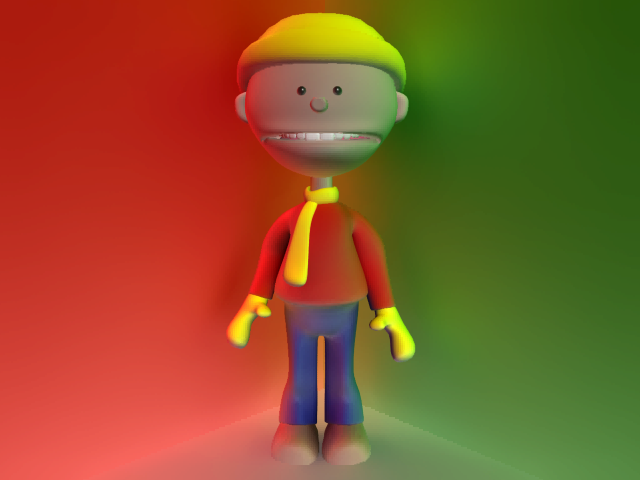Final gathering is a way of calculating indirect illumination without using photon energy. Instead of using rays cast from a light to calculate illumination, final gathering uses rays cast from each illuminated point on an object's surface. The rays are used to sample a hemispherical area above each point and calculate direct and indirect illumination based on what the rays hit.

This scene was rendered using final gathering, which "collects" the indirect and direct light around illuminated points on an object's surface to simulate real-world lighting.
The overall effect is that every object in the scene becomes a "light source", at least to some extent, and influences the color and illumination of the objects and environment surrounding it.
You can combine direct illumination and/or global illumination with final gathering to increase photorealism in your scenes. Used in the correct way, final gathering can create stunning, photorealistic lighting in a fraction of the render time needed for global illumination alone.
 Except where otherwise noted, this work is licensed under a Creative Commons Attribution-NonCommercial-ShareAlike 3.0 Unported License
Except where otherwise noted, this work is licensed under a Creative Commons Attribution-NonCommercial-ShareAlike 3.0 Unported License